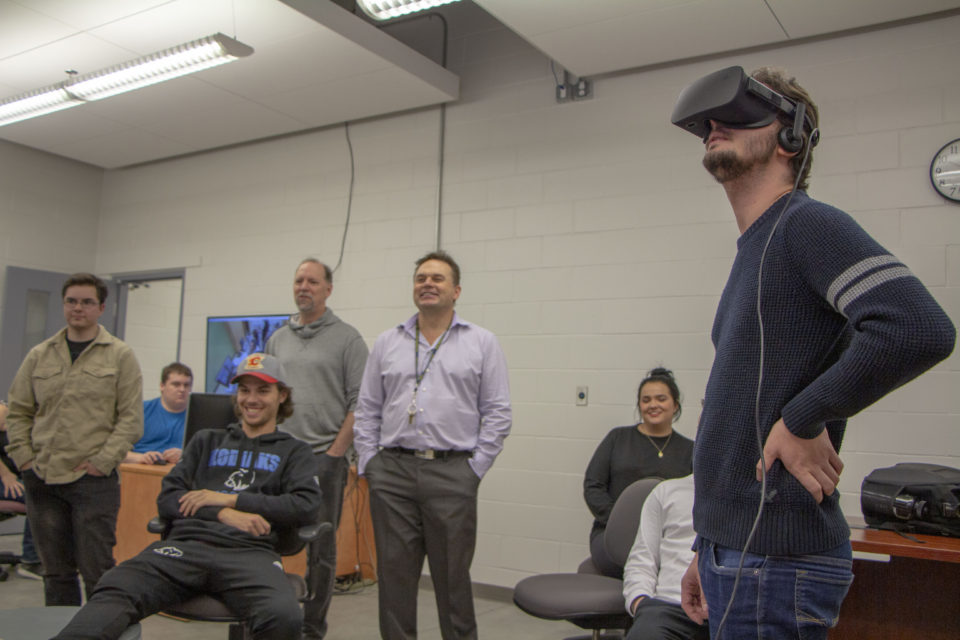Lethbridge College is increasing its program count from by two thanks to its applied research in the field of virtual reality.
Virtual reality has been a focus by the applied research department for the past two years.
“[Virtual Reality] is an area where we see potential for growth,” explains Dr. Kenny Corscadden, Associate Vice-President of Applied Research. “Our researchers have set up a simulation lab to look for applications in both programming and training.”
Although the college researches on behalf of local industry partners, many of its projects have implications that will help shape current and future programs.
Virtual reality is on the cutting-edge of today’s technology and its potential is still largely untapped. The research the college is doing will help shed light on how many programs can benefit from integrating virtual reality.
“I think there are applications right across the institution… I can see VR being used in many different industries for training,” says Corscadden, who is also the dean of Technologies, Environment and Design.
Virtual reality helps deal with issues such as safety for students in trades programs by allowing students to practice skills in an uncontrolled environment without the inherent risks involved.
Other programs, such as Early Childhood Education, could use virtual reality to observe how children interact, without their presence influencing their behaviour or becoming a distraction.
Even though it may be a few years before the college begins applying VR to traditional programming, they are currently working on two programs dealing with the technology itself.
The college is planning to add two programs – a Virtual Reality/Augmented Reality Certificate and Architectural Animation Diploma, starting next fall.
The first program is a one-year certificate program designed to keep pace with the rapidly developing technology.
“[VR] can be carried out in so many different ways,” says Samantha Lenci, Vice-President Academic. “It focuses on creating those worlds and integrating augmented reality into our existing world.”
The Architectural Animation Diploma will take students through a two-year program giving students the tools to create a limitless variety of VR spaces.
“In Animation, [students] won’t have the boundaries of design, they will only have the boundaries of mind,” Lenci explains. “It’s an expansion of, ‘how big can you think? How big can you create?’”
Both programs are the first of their kind in Canada. The college is planning to take on around 45 students in its first year, which is over 1 per cent of the current student population.
The education will be delivered from a mix of existing program instructors, many who are on the committee for the research already. Lenci also noted a full or part-time expert may be brought in for instruction if the need arises.
Prospective students for these new programs should rest assured that jobs will be available for them upon graduation, Corscadden explains. He says the college takes on a finite number of students each year to ensure the college does not saturate the market.
“We market our students and we make sure our industry partners know just how good our students are,” Lenci says.
There are a couple of hurdles for these programs to clear before they can officially be added – the Lethbridge College Board of Governors will review the programs in the coming weeks.
After an approval by the Board of Governors, it is then on to Alberta Advanced Education, who will give the final go-ahead.
If all goes well in these next two steps, expect to see Lethbridge College embracing Virtual Reality by as early as Sept. 2019.



